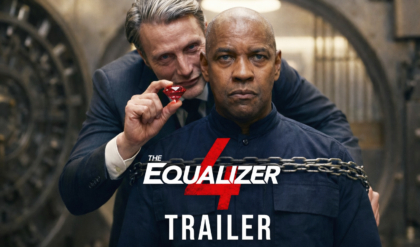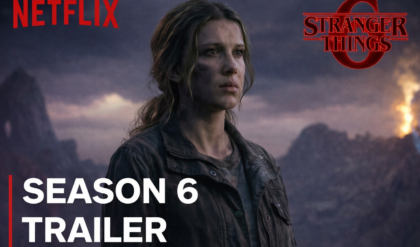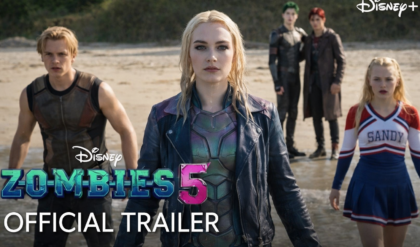In the ever-evolving world of gaming, few things ignite the passions of fans quite like a perceived misstep from a beloved developer. Ubisoft, a titan in the industry known for franchises like Assassin’s Creed, Far Cry, and Rainbow Six, has once again found itself at the center of controversy. This time, the spark is a $25 outfit pack for Assassin’s Creed Shadows, a highly anticipated title set in feudal Japan. The pack, touted as a premium cosmetic addition, has been met with widespread outrage from fans who claim it offers little more than a superficial tweak to their in-game characters. With social media platforms buzzing and gaming forums alight with criticism, the situation raises broader questions about microtransactions, fan expectations, and Ubisoft’s relationship with its community. Let’s dive into the details of this controversy, explore its roots, and unpack why it’s struck such a nerve.
The Outfit Pack: What’s the Deal?
The $25 outfit pack in question, dubbed the “Sakura Elegance Collection” (a name circulating among fans, though not officially confirmed), was introduced as a premium cosmetic bundle for Assassin’s Creed Shadows. Marketed as an exclusive set of outfits for protagonists Naoe and Yasuke, the pack promised to bring a touch of aesthetic flair to the game’s open-world experience. Given the game’s setting in 16th-century Japan, fans expected intricate designs inspired by the era’s rich cultural tapestry—perhaps samurai armor adorned with cherry blossoms or stealthy shinobi garb woven with subtle historical details.
Instead, what players received was a set of reskins that many describe as underwhelming. The outfits, according to early adopters and leaked screenshots shared across platforms like Reddit and X, feature minor color palette swaps and slight texture tweaks compared to existing in-game cosmetics. One fan on X lamented, “I spent $25 expecting a masterpiece, and it’s just Yasuke’s default robe with pink flowers. Are you kidding me?” Another Reddit thread in the Assassin’s Creed subreddit garnered hundreds of upvotes for a post titled “Ubisoft’s $25 Scam: Same Outfit, New Price Tag,” where users dissected the pack’s assets, pointing out recycled textures from free cosmetics available at launch.
The price tag—$25, equivalent to a third of the game’s base price of $70—has been a particular sticking point. For context, $25 could buy a full indie game or a substantial expansion for other AAA titles. Fans argue that the cost is disproportionate to the value, especially in a single-player game where cosmetics don’t affect gameplay or provide competitive advantages. This sentiment is amplified by the fact that Assassin’s Creed Shadows already includes a robust customization system, with dozens of earnable outfits unlocked through exploration and missions. Why, then, pay a premium for something that feels like it should have been included in the base game?
A Pattern of Discontent
To understand the intensity of the backlash, it’s worth examining Ubisoft’s history with microtransactions and fan relations. Over the past decade, the company has increasingly leaned into monetization strategies that supplement its games with paid content. From Assassin’s Creed Odyssey’s “time-saver” XP boosts to The Division 2’s premium cosmetic bundles, Ubisoft has experimented with ways to generate revenue beyond initial sales. While these practices are standard in the industry—think EA’s FIFA Ultimate Team packs or Activision’s Call of Duty skins—they’ve often clashed with Ubisoft’s fanbase, who hold the developer to a higher standard given its legacy of narrative-driven, single-player experiences.
The Assassin’s Creed series, in particular, has been a lightning rod for criticism. Fans fondly remember earlier entries like Assassin’s Creed II and Black Flag, which delivered complete experiences without the need for additional purchases. The shift toward RPG-style games with expansive worlds (Origins, Odyssey, Valhalla) introduced grind-heavy mechanics, prompting Ubisoft to offer microtransactions that alleviate time investment. While optional, these additions left a sour taste, with players feeling that game design was being manipulated to nudge them toward spending more.
The $25 outfit pack for Shadows feels like an extension of this trend, but its execution—minimal changes at a steep price—has pushed fans past their breaking point. On X, posts with hashtags like #BoycottUbisoft and #ACShadowsScam have trended sporadically, with users sharing memes comparing the outfit pack to overpriced fashion knockoffs. One viral image juxtaposed a default Naoe outfit with the paid version, captioned, “Spot the difference: $25 edition.” The community’s frustration isn’t just about the pack itself but what it represents: a perceived erosion of Ubisoft’s commitment to delivering value.
The Broader Microtransaction Debate
The outrage over the Sakura Elegance Collection taps into a larger conversation about microtransactions in gaming. Once confined to free-to-play mobile games, paid add-ons have become ubiquitous in AAA titles, even those with full-price entry fees. Publishers argue that rising development costs—often exceeding $200 million for blockbusters like Assassin’s Creed—necessitate additional revenue streams to sustain profitability. Cosmetic microtransactions, they claim, are harmless because they’re optional and don’t affect gameplay balance.
Critics, however, see a darker side. When a $25 outfit pack offers minimal effort, it fuels suspicions that developers are prioritizing profit over creativity. This is especially true for single-player games, where the absence of a competitive ecosystem makes cosmetics feel less justified. A 2023 study by the Entertainment Software Association found that 70% of gamers are open to microtransactions, but only if they’re fairly priced and add meaningful value. Ubisoft’s latest misstep seems to violate both criteria, alienating even those who might otherwise tolerate paid extras.
Comparisons to other developers highlight the divide. CD Projekt Red, for instance, released The Witcher 3 with free cosmetic DLCs and a $25 expansion (Blood and Wine) that added 20 hours of story content. Meanwhile, Rockstar’s Red Dead Redemption 2 offers cosmetics earnable through gameplay, with microtransactions limited to its online mode. Ubisoft’s approach—charging premium prices for lackluster single-player cosmetics—feels out of step with fan expectations, especially when Shadows is already a $70 game with optional season passes and editions costing up to $130.
Ubisoft’s Response and Fan Reactions
As the backlash grew, Ubisoft issued a statement via its official X account, acknowledging the feedback. “We hear your concerns about the Sakura Elegance Collection,” the post read. “Our team is reviewing the content to ensure it meets our quality standards and your expectations. Thank you for your passion.” The response, while diplomatic, did little to quell the storm. Fans on Reddit called it “corporate boilerplate,” pointing out that Ubisoft has a history of vague promises following controversies, such as the Assassin’s Creed Unity launch bugs or The Division’s broken promises about free DLC.
Some players demanded refunds, though Ubisoft’s refund policy for digital purchases is notoriously strict, requiring unopened content and requests within 14 days. Others called for the outfit pack to be made free as a goodwill gesture, citing precedents like Destiny 2’s Bungie offering free cosmetics after similar fan outcry. A small but vocal minority even floated the idea of boycotting Shadows altogether, though the game’s strong pre-order numbers suggest this is unlikely to gain traction.
Interestingly, not all reactions were negative. A subset of fans defended the pack, arguing that cosmetics are optional and that Ubisoft’s development costs justify the price. “If you don’t like it, don’t buy it,” one X user wrote. “Nobody’s forcing you to spend $25.” These voices, however, were drowned out by the broader sentiment that Ubisoft had crossed a line. The debate has even spilled into mainstream media, with gaming outlets like IGN and Kotaku running pieces on the controversy, framing it as a case study in how not to handle microtransactions.
The Bigger Picture: Ubisoft’s Challenges
The outfit pack fiasco comes at a turbulent time for Ubisoft. In recent years, the company has faced declining stock prices, high-profile flops like Skull and Bones, and criticism over workplace culture. Star Wars Outlaws, another 2024 release, received mixed reviews for its repetitive gameplay, putting pressure on Assassin’s Creed Shadows to deliver a hit. With development costs reportedly exceeding $300 million, Ubisoft is under scrutiny from investors and fans alike to prove it can balance profitability with quality.
The $25 outfit pack, then, isn’t just a misjudged cosmetic—it’s a symbol of deeper tensions. Fans want Ubisoft to return to its roots, crafting immersive worlds without nickel-and-diming players. The company, meanwhile, is navigating an industry where live-service models and recurring revenue are the norm. Striking a balance is no easy task, but Ubisoft’s current approach risks alienating its core audience.
What’s Next?
As the dust settles, the question remains: how will Ubisoft respond? Some speculate the company might enhance the outfit pack with additional designs or lower its price to appease fans. Others believe Ubisoft will weather the storm, banking on Shadows’ overall quality to overshadow the controversy. The game itself has garnered praise for its dual-protagonist system and vibrant depiction of feudal Japan, suggesting it could still be a critical and commercial success.
For now, the $25 outfit pack serves as a cautionary tale. It’s a reminder that in the age of social media, fan backlash can amplify quickly, turning a minor misstep into a PR nightmare. It also underscores the delicate dance between developers and players, where trust, once broken, is hard to rebuild. As Ubisoft moves forward, it’ll need to listen more closely to its community—or risk losing the loyalty that’s sustained it for decades.
In the end, the Sakura Elegance Collection is more than just a pricey cosmetic. It’s a flashpoint in an ongoing debate about what gamers deserve for their money and whether Ubisoft can reclaim its place as a fan-favorite innovator. For now, the conversation rages on, and the gaming world is watching closely.





